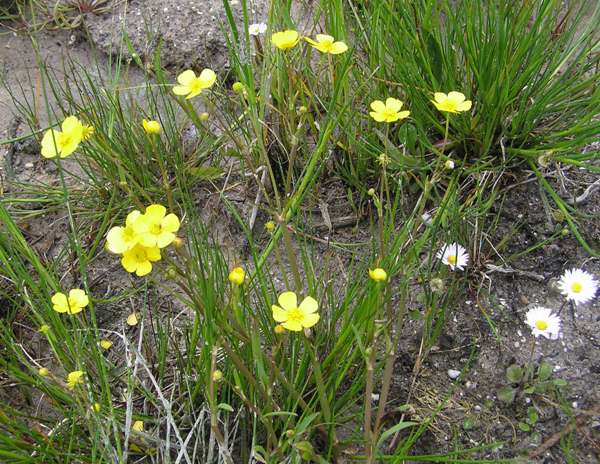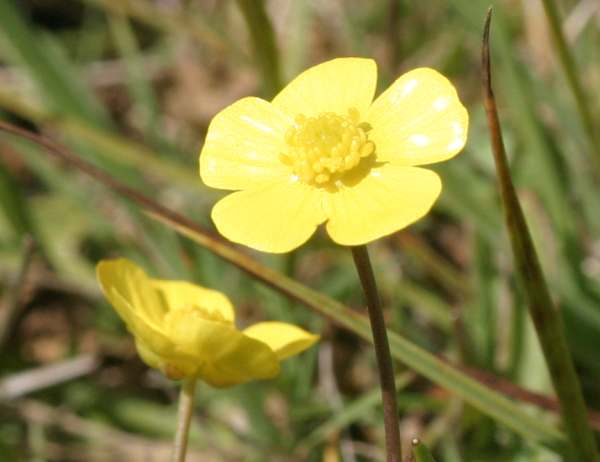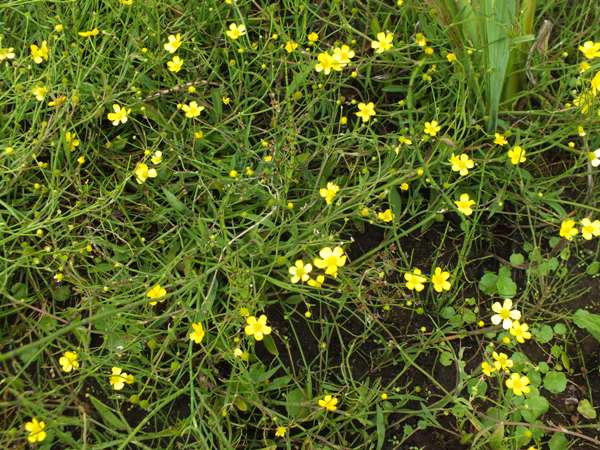Ranunculus flammula - Lesser Spearwort
Phylum: Magnoliophyta - Class: Equisetopsida - Order: Ranunculales - Family: Ranunculaceae

This wildflower is widespread throughout Britain and Ireland but is most common in the north.
Description
The narrow, spear-shaped leaves of this common plant distinguish it from other members of the Buttercup family with similar flowers but lobed leaves. Often the branching stems are creeping, with flowers borne close to the ground, but among taller vegetation Lesser Spearwort can to a height of 40 to 50cm. The cup-like flowers have five shiny yellow petals.

Habitat
Lesser Spearwort grows in marshy ground such as peat bogs, wet shallow ditches and the margins of ponds, lakes and rivers.

Blooming times
In Britain this little wildflower of spring and summer can be seen in flower from May throiugh to the end of September.
Etymology
Lesser Spearwort's poisonous sap has been known to kill grazing animals, and the specific name flammula may be a reference to the inflammation caused in some humans if the sap comes into contact with their skin.
The specimens shown here were seen in Wales, at Tregaron Bog (Cors Caron) National Nature Reserve, in June.
Sue Parker's latest ebook is a revised and enlarged edition of Wild Orchids in The Burren. Full details here...
Buy it for just £5.95 on Amazon...
Please Help Us: If you have found this information interesting and useful, please consider helping to keep First Nature online by making a small donation towards the web hosting and internet costs.
Any donations over and above the essential running costs will help support the conservation work of Plantlife, the Rivers Trust and charitable botanic gardens - as do author royalties and publisher proceeds from books by Pat and Sue.

